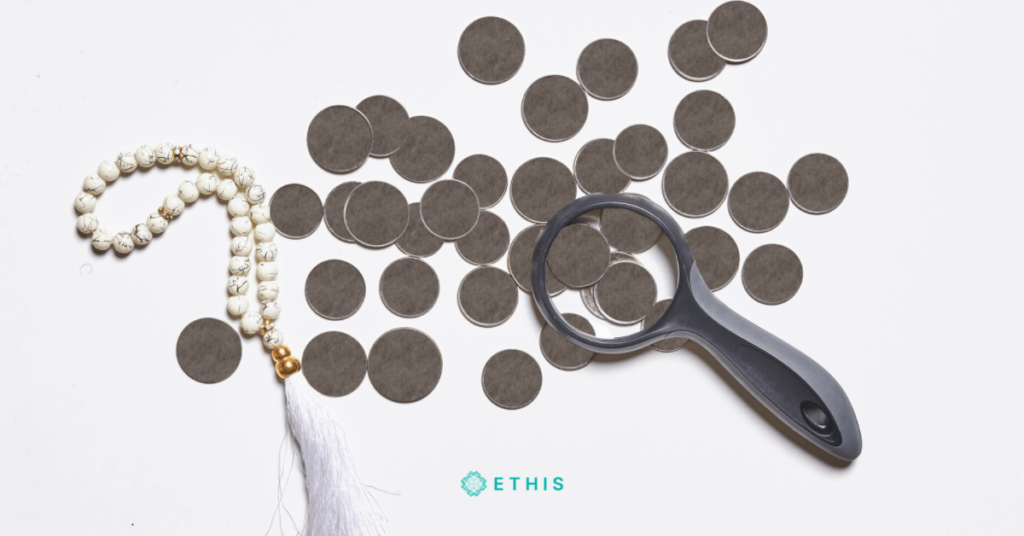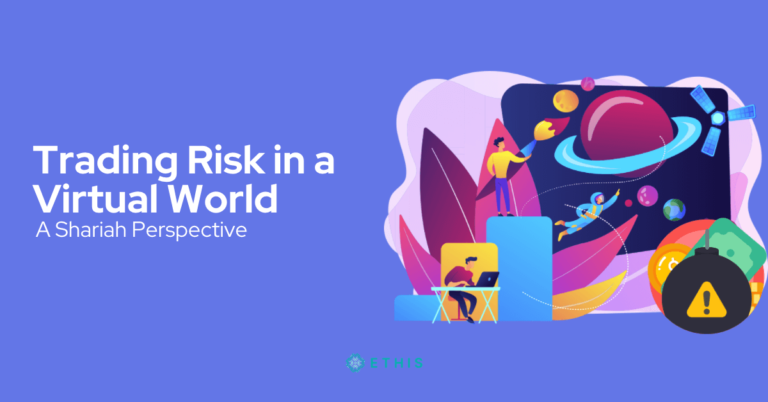
By Abdulazeem Abozaid
A person’s wealth is preserved in shariah, and it is not transferrable to others without his consent, or without a legitimate justification such as an exchange contract, a donation, or inheritance. Moreover, a transfer will not be considered permissible without the consent of a person such as through usury (Riba) or gambling.
The borrower’s consent to pay an increase over the amount of the loan to the lender does not legalise the transaction, and the consent of the two parties to the gambling acitvity does not legalise the transfer of wealth from one to the other according to the outcome of the gambling activity.
In this regard, usury can be regarded as the opposite of gambling. The gain is guaranteed in usury while it is at great risk in gambling. That is, it is as if the Shariah has prohibited the guaranteed gain that comes at the expense of others, as well as the gain associated with a high risk that comes from the loss of others so that the permissible gains lie in the wide middle area between these two extremes: the total absence of risk on the one side (usury) and the excessive risk on the other side (gambling).
While riba does not accommodate diversity in its tools, i.e. the interest-bearing loan contract remains the way to earn interest regardless of its forms, gambling on the other hand opens up to the advance of new tools. Gambling initially used to be carried out with wooden sticks, and later it developed into various games played in casinos, but recently the same concept took a different curve when it entered the realm of the financial markets including the capital market, the commodity market and the money market.
These markets were originally established to facilitate the sale and purchase of real assets such as stocks, wheat, and currencies, whereby the dealer buys them for direct investment or for his needs so that the purchase process ends with actual possession of the underlying asset. But these markets developed later to become a place for price speculation on what is sold in them using different contracts, the most important of which is what is known as Futures.
Herein, the speculator buys the currency, stock or commodity not to acquire it, but rather in the hope of making a quick gain when its price changes, such that the contract does not end with actual execution, but rather by paying the price difference, which the losing party pays to the winner.
All these price speculation operations are carried out with the guarantee and control of the market. It collects from both parties a margin corresponding to the change in the price of the underlying asset from the time of contracting to the time of execution, to ensure that the losing party pays the price difference representing the gain to the other.
The same process takes place in currencies, stocks, and everything whose market value is subject to change. These markets have also developed to include complex price speculation operations, including Options and Swaps. All these contracts fall under what is known as financial derivatives because they are traded independently despite the fact that they do not have a value on their own, but rather their value is derived from their underlying assets.
New Developments


Recently, the tools for price speculation have evolved beyond derivatives to include things of no underlying assets of intrinsic value whatsoever. They have expanded to include virtual things, such as cryptocurrencies.
Cryptocurrencies were originally designed to be used as currencies, but they are mostly acquired to profit from the possible increase in their market prices. As their value is highly volatile, they have become a valid tool for price speculation. They are traded through derivative contracts, short selling and margin trading. The nature of these contracts necessitates a continuous fluctuation of these currencies, up and down, so that the possibility of speculation on them continues.
For example, the potential future depreciation in their market value tempts the short-sellers, while the potential future appreciation in their value temps the margin traders. In order to attract both traders and for the markets to benefit from the commissions of each trading transaction, the values of these currencies must continue to fluctuate. However, the increase or decrease in the price means obtaining a gain for some traders and a loss for others, and the winning of winners come at the expense of the losers, hence the gambling nature.
If these cryptocurrencies can be used to buy goods and services, albeit with variant limitations and restrictions, then the tools of price speculation have evolved even further to include some components of virtual Internet games, such as construction spaces (virtual lands) and the tokens, which have no value whatsoever outside their fun value within those games. Quick fortune seekers have started trading in these games components after they gained trading platforms.



Pitfalls of Price Speculation


While the fluctuations in the values of the real assets are driven by natural market factors, such as the performance of companies represented by shares in the stock market, or the disruption of the supply of goods in the commodity market, excessive price speculation has led the market prices to be driven by artificial external factors.
In the stock market, for example, the price of a sock is determined by the volume and type of its speculative trading more than anything else. It could be that a stock of a company is picking up value while the performance of its company is deteriorating, or the sock is losing value while the performance of its company is improving! The high volatility in the value of cryptocurrencies is even more evident. Despite the different factors causing the volatility of their market value, such as their legal recognition as well as detection of loopholes in their system, their entry into the realm of speculation through derivatives, short selling and margin trading remains the biggest factor of all.
That is, the speculative markets, which operate only in a changing climate, are no longer satisfied with waiting for the value of their traded assets to change naturally. Rather, now the market itself plays the largest role in causing volatility in values so that the market becomes more active and continues to gain.
Hence, the market has found in financial instruments derived such as digital currencies and virtual game components, a fertile ground for gaining, given that these assets are completely free from what may stabilize their values or reduce their volatility.
Shariah Perspective


From a macro Shariah perspective, the above practices remain highly controversial as they carry the features of prohibited gambling. Besides, entering the world of virtual speculative trading denies us the opportunity to invest our wealth locally and in a way that yields real production, benefit our societies and occupy the workforce.
Instead of our youth setting up productive projects that may benefit our countries and reduce unemployment, they dream of making quick gains through putting their hard-earned money into these tools. If they lose, they might even fall victims for their wishes and throw the rest of their money in the hope of making up for the past losses.
Whoever seeks the fatwa to enter this virtual investment world should know that the essence and the general objectives of shariah forbid this kind of investment. The law that forbids a gain that is conditional between two on winning some competition, which is the simplest form of gambling, certainly forbids such action, especially with the need of the Muslim world for economic advancement with real productive projects that help develop the various economic sectors.
On the other hand, no one can argue for the existence of transparency or decentralisation in these virtual investments, because corruption in the world of finance and business has no limits, even in first world countries, and the 2008 crisis has revealed only a small portion of this corruption. Indeed, if corruption in the Islamic world is individual, it is in the first world countries institutional, which makes enforcing the necessary governance and regulation more challenging.
In conclusion, financial engineering in the global financial markets has been designing new financial tools that entice quick-gain seekers, but the real and ultimate winner remains the big financial markets. They get stronger and become more capable of controlling the world. This is the case of the new global capitalist system, which has found in the virtual world an unprecedented opportunity to invent financial tools stemming from no real assets or real economic activity, and a limitless platform to access the money of individuals in all corners of the earth.
Undoubtedly, this virtual investment world receives the blessing of the capitalist countries even if it brings them some cautions, because it maintains their supremacy over the third world countries as it gives them access to their untapped wealth.
Also read How Islamic Finance Contributes to the Growth of Sustainable Finance





Top Posts
Islamic P2P Crowdfunding Explained
How to Earn Halal Money? The Money Mindset
Halal Investments for Singapore Muslims? It’s time for a shake-up in the Islamic Investments scene.
Smart investment for making Halal money
3 Reasons Why Property Crowdfunding is the Smart Investment for You